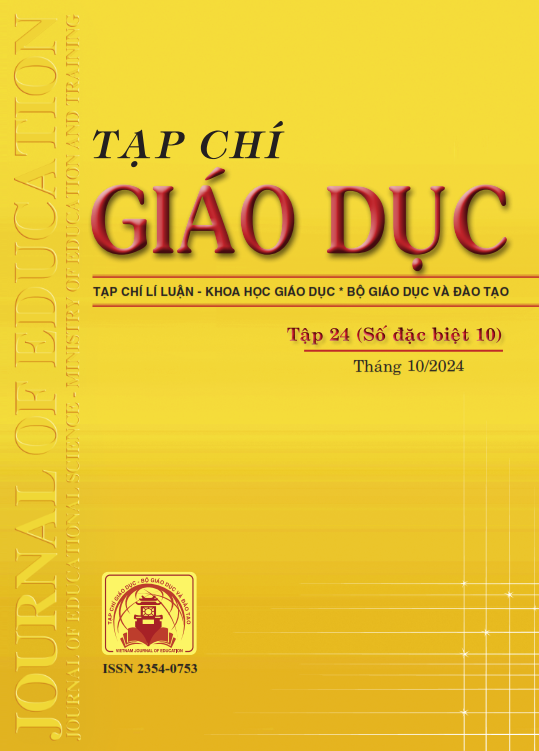Một số biện pháp nâng cao hiệu quả hoạt động đánh giá kết quả học tập của sinh viên các trường đại học, học viện Công an nhân dân theo tiếp cận năng lực
Tóm tắt
The quality and effectiveness of the teaching process in schools depends on many factors that take place before, during and after the teaching process. As an important step in the teaching process, assessing student learning outcomes helps schools determine the level of achievement of the goals of the teaching process, directly contributing to promoting and perfecting the teaching process. The more accurate and rigorous the assessment of student learning outcomes is, the more the school's educational quality will improve. The article focuses on learning about the assessment of student learning outcomes in universities and People's Public Security academies and proposes some measures to improve the management efficiency of this activity. Evaluating student learning outcomes according to the competency approach not only reflects the student's learning process but also evaluates the degree to which they meet the requirements of knowledge, skills, and professional attitudes of students with the training goals set by the school, meeting the Industry's requirements for training and supplementing human resources for police officers in the current context of innovation.
Tài liệu tham khảo
Airasian, P. W., Cruikshank, K. A., Mayer, R. E., Pintrich, P. R., Raths, J., & Wittrock, M. C. (2011). Classroom Assessment: Concepts and Applications.
Ban Chấp hành Trung ương (2013). Nghị quyết số 29-NQ/TW ngày 04/11/2013 về đổi mới căn bản, toàn diện giáo dục và đào tạo, đáp ứng yêu cầu công nghiệp hóa, hiện đại hóa trong điều kiện kinh tế thị trường định hướng xã hội chủ nghĩa và hội nhập quốc tế.
Bộ Công an (2014a). Nghị quyết số 17-NQ/ĐUCA ngày 28/10/2014 của Đảng ủy Công an Trung ương về đổi mới căn bản, toàn diện giáo dục và đào tạo trong Công an nhân dân.
Bộ Công an (2014b). Chỉ thị số 13/CT-BCA ngày 28/10/2014 của Bộ trưởng Bộ Công an về đổi mới căn bản, toàn diện giáo dục, đào tạo trong Công an nhân dân.
Darling-Hammond, L., Adamson, F., & Abedi, J. (2010). Beyond basic skills: The role of performance assessment in achieving 21st century standards of learning (p. 52). Stanford Center for Opportunity Pollcy in Education.
Glaser, R., Chudowsky, N., & Pellegrino, J. W. (Eds.). (2001). Knowing what students know: The science and design of educational assessment. National Academies Press.
Phạm Thị Mỹ Đức (2024). Thực trạng và đề xuất giải pháp quản lí hoạt động đánh giá kết quả học tập của SV ngành Du lịch theo tiếp cận năng lực tại một số trường đại học các tỉnh miền Bắc. Tạp chí Giáo dục, 24(số đặc biệt 3), 245-250.
Popham, W. J. (2014). Classroom assessment. Pearson. Roegiers, X. (1996). Khoa sư phạm tích hợp hay làm thế nào để phát triển các năng lực ở nhà trường. NXB Giáo dục.
Trần Thị Tuyết Oanh (2014). Đánh giá kết quả học tập. NXB Đại học Sư phạm.
Yarbrough, D. B., Shula, L. M., Hopson, R. K., & Caruthers, F. A. (2010). The Program Evaluation Standards: A guide for evaluators and evaluation users(3rded.). Corwin Press.
Đã Xuất bản
Cách trích dẫn
Số
Chuyên mục
Giấy phép

Tác phẩm này được cấp phép theo Ghi nhận tác giả của Creative Commons Giấy phép quốc tế 4.0 .












